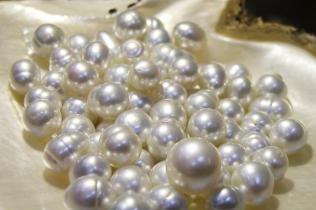
In the clinical nutrition seminars that I attend we are always happy when the presenter takes a break from some involved chemistry lecture and gives us “clinical pearls”. Those are tidbits we can put to use. I’ve gathered up a few items from the news and from last week’s interview with Bill Sardi.
- There is a lot of information in the Immune Section of the HBN Library about preventing colds and flu and for dealing with them. I just added a very helpful article on that topic from Bill Sardi.
- During last Saturday’s show, Mr. Sardi said in passing that when the eye doctor notices yellow deposits (Drusen) in the macula of the eye, it may be a clue that there is amyloid plaque in the brain (implicated in Alzheimer’s). I found this study.
- We’ve mentioned several time on the show (and in last week’s blog) that supplements of IP6 help remove heavy metals, misdirected calcium, and excess iron. We also noted that has helped with cancer. Now a case report in a medical journal states that: “Inositol hexaphosphate [IP6] plus inositol induced complete remission in stage IV melanoma.”
- When I was studying up on vitamin C, I was surprised to find a journal article suggesting that law enforcement and legal teams should be aware of the forensic potential of scurvy (low vitamin C). Vitamin C deficiency can mimic traumatic injuries and can be responsible for sudden death. Vitamin C deficiency is also associated with heart failure, rhythm disturbances and seizures.
- Those who have been using Bill Sardi’s baking soda protocol may wonder about the effect on stomach acid we need for digestion. Yes bicarbonate neutralizes stomach acid, but we suggest taking it on an empty stomach at least 30-60 minutes before a meal. I take mine first thing in the morning.
- A caller asked if it was okay to take vitamin K if you are on a blood thinning drug. Bill Sardi said that the warfarin and Coumadin type drugs are taken to reduce platelet clumping but they are vitamin K blockers. After 10 years on the drug, x-rays show calcification of the arteries because of lack of vitamin K which was needed to escort the calcium into bones. K also helps prevent wrinkles. (There are newer anti-clumping drugs that don’t block K.) Vitamin K comes from green leafy vegetables. He believes you should get a steady amount of K from food and supplements and have the doctor regulate the blood thinner dose accordingly around that. Natural blood thinners are fish oil, resveratrol, vitamin E, garlic. If there is an existing clot, the enzyme natto kinase might be indicated. Listen to my Dr. Anthony Thomas interview about vitamin K2. A great book on the topic Vitamin K2 and the Calcium Paradox: How a Little-Known Vitamin Could Save Your Life. An interview with the author LINK.










 January 18, 2019
January 18, 2019 
